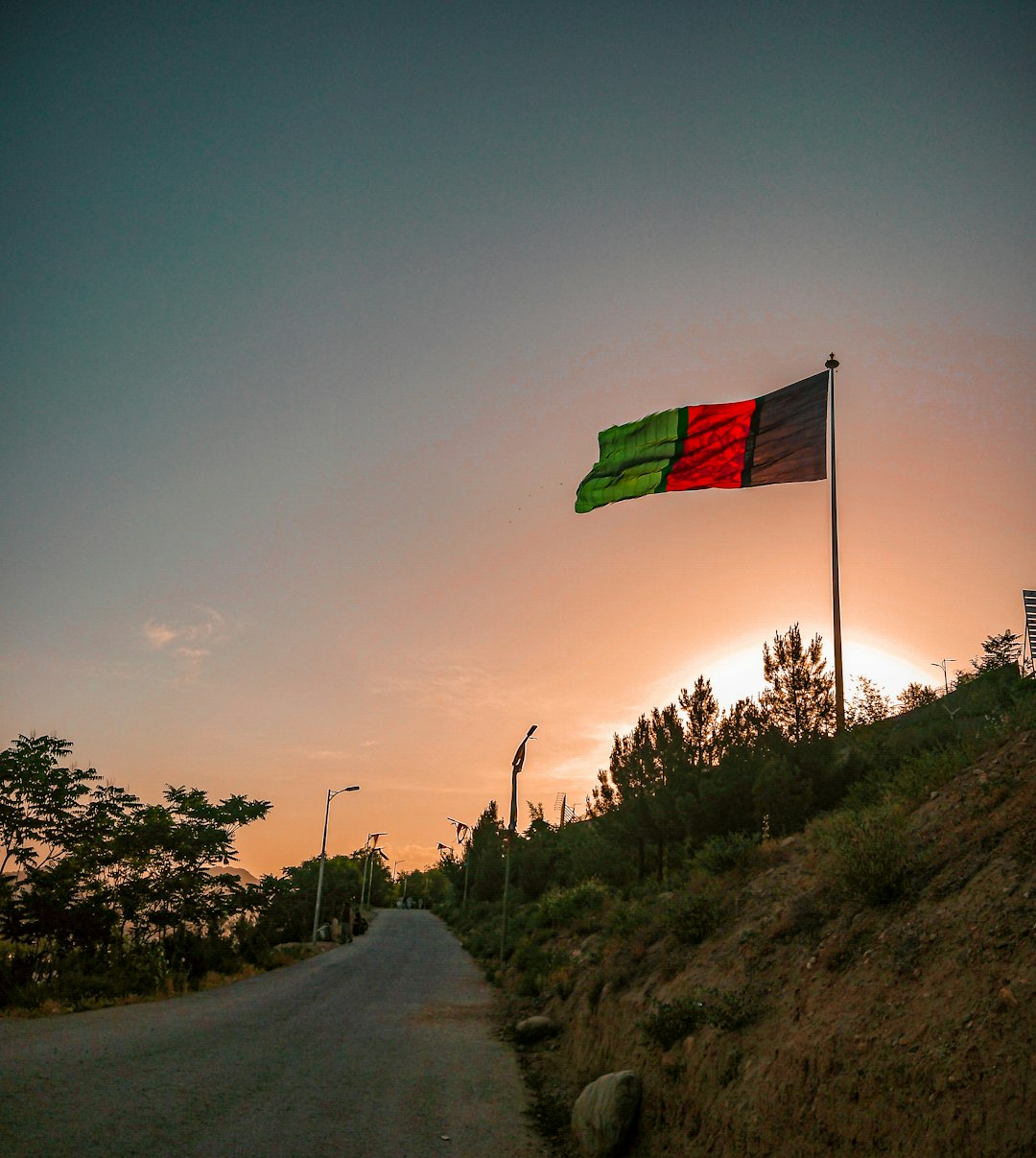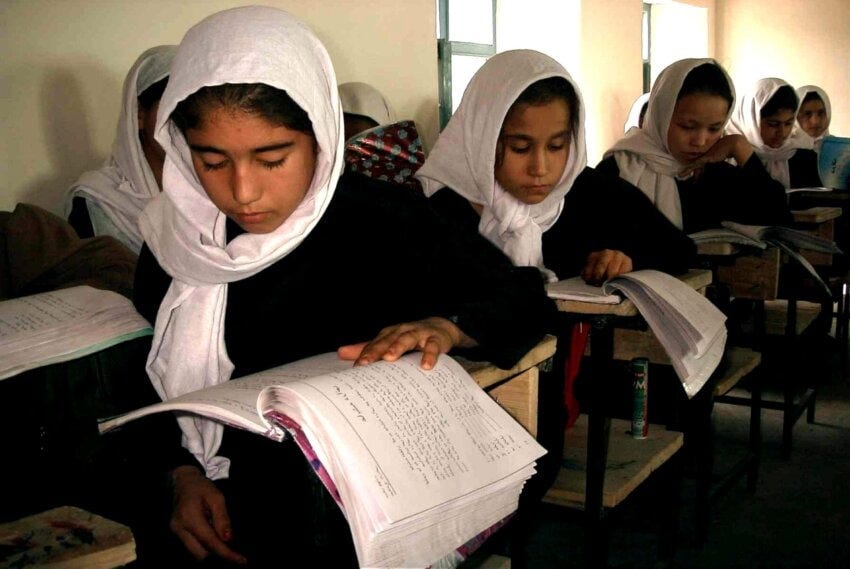A Relative Taste Of Freedom In Afghanistan
Since the US withdrawal from Afghanistan, I have spoken with dozens of women, all who share the same sentiment: they will do whatever it takes to continue the fight for women’s right to education
“Apologies for the delay in responding to your questions about our girl students. We had to stop talking because the Taliban were conducting house-to-house searches in the area.”
This is a message sent to me by a school teacher in Afghanistan one afternoon. She is not merely a school teacher. She has been running an underground school in a major city in Afghanistan since the Taliban banned girls from secondary school education in September. I was in the process of speaking with her both over the phone and via email about the great risk she takes upon herself in pursuit of this goal, and how Ideas Beyond Borders could best support her. Despite my lack of Farsi or Dari comprehension, we managed to have many deep conversations. There would sometimes be periods of days or even weeks at a time when I would not hear from her and I would fear the worst. Had she been kidnapped and killed? Was she giving up? I would have to wait to hear from her to find out. If women like her give up, who will defend the rights of young girls in the region? She and courageous women like her are putting themselves on the front lines– fighting for the values that women all across the world hold dear
Since the United States’ withdrawal from Afghanistan, I have spoken with dozens of women, all who share the same sentiment: they will do whatever it takes to continue the fight for women’s right to education in the country, no matter the cost. They have had a relative taste of freedom over the past 20 years, and they will not willingly abandon it. Many people in the United States may have differing opinions over foreign policy questions surrounding the withdrawal and the war in Afghanistan, but everyone can agree that women and girls were the first victims of the Taliban takeover. This will remain one of the biggest scars left behind by this war that we have to live with for the rest of our lives, not just as Americans, but as humans.

What has resonated most with me in my conversations with these women is not just the crucial and dangerous work they are doing, but their spirit while doing it. These teachers are willing to defy one of the most authoritarian and brutal extremist groups in the world and are yet full of hope. Grandmothers and mothers in the region have witnessed what possibilities education has opened up for their daughters and for Afghanistan as a nation. Many of the teachers who are running these underground networks of secret schools are the first in their family or tribe to have ever been educated. They are keenly aware that education and freedom are mutually exclusive given their circumstances. One does not come to fruition without the other. When Nicholas Kristof said the greatest threat to extremism isn't drones firing missiles, but girls reading books, he was right, and the Taliban know it.
When I asked this particular teacher about what gives her hope, she said, “It’s the students and other teachers who are taking as much risk– if not more risk in showing up every day to work and build a resistance movement to defy the occupying regime of Taliban. We’re forcing them to give women and girls their inalienable rights of education and self-determination.” Despite the fear and uncertainty of each day they continue on. The work that goes into running an underground school is daunting. They must find a place to meet that they can afford, arrange for the students to arrive and depart safely each day, provide meals for the students during the day, and craft lesson plans that are in direct opposition to the current regime.
Under the Taliban’s rule from 1996 to 2001 girls were not only barred from education and employment but were often married off to a man of her family’s choosing as young as 12 or 13 years old. They were and are being once again confined to their homes when not accompanied by their husband, and are closely watched at all times. When they do leave the house they are required to be fully covered under threat of severe punishment. When these young girls are married off there is often money that exchanges hands between families, as desperation can lead one to do unthinkable things. The country is currently enduring one of the worst economic downturns in the history of the country. The longer the Taliban stays in power and the country’s economy worsens, the more desperate people will become. Child marriage is already a leading cause for girls to drop out of school.
As someone who has lived in and resisted extremist militias like Al Qaeda in Iraq, not only do I have sympathy for what is happening to them, but I have an intimate understanding of the constant fear that one has to constantly deal with while doing this work.
The fear of getting reported to the authorities by people you think are your friends. The fear that when your daughter, niece, or friend walks out of the door in the morning to go to school that she might never return.
Some teachers I spoke with would love to see their students travel to other countries for an education, but many want to stay and fight for a free Afghanistan where women are able to go to school, get jobs, choose their husbands for themselves as adults, and are able to contribute to the country as a valuable member of society. They want to live in a peaceful Afghanistan rather than flee to unknown lands. For many, this is the only home they have ever known. No one should be driven from her homeland by those who seek to curtail her rights to determine her own future.
Female student, 19 years old: “I attend, as I attended before despite all dangers we had during past years. I saw suicide attacks at my school, at the educational centers and in the street but I did not give up. I think if I give up the time itself cannot change anything unless I do. I study because I think the reason that I have a poor and war-torn country is the lack of education. I want to be a powerful and educated person to help my family and my country. I want to create a good life for me and my family to live safely. I also want to get powerful to help my country’s girls and women to educate and be free.”
Female student, 17 years old: “I am tired of war, and backwardness. I have to change my destiny and my country’s future. If I cannot study, I will stay as weak as I am today. I, as a girl even cannot go out of my home easily. I want to be an educated person in my country to work hard and honestly to see it with peace. For this reason, I want to take this risk today to have a better tomorrow. I want to be powerful to change my future, I want to remove war, I want to defeat the Taliban in order not to see any other girl with tears on her face in my country.”
The Taliban has extended the girls education ban indefinitely, and earlier this month they released a formal directive saying women should not leave their homes except in cases of urgent necessity. We're working with local partners in the country to fund secret underground schools to counter this oppression and help girls get the vital education they need while trying to keep them as safe as possible.
Ideas Beyond Borders will continue to support these women and girls and their laudable goals. If you’d like to help Ideas Beyond Borders support these brave teachers and schools, please donate here. Please don’t hesitate to contact me at Faisal@ideasbeyondborders.org with inquiries.




